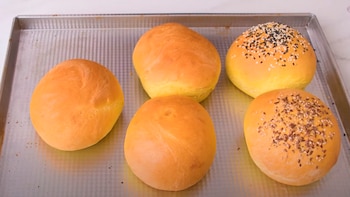
Motorcycling is the most risky activity in motorsport and in 2021 there were three riders who lost their lives. Others can count it as MotoGP rider Pol Espargaró, who almost got into a wheelchair after a terrible accident at the Warm Up in Czech Republic, which is a test used to check that everything is OK on the bike before the race. He had a hard recovery after that incident and in the early days his partner, Carlota Bertran, helped him to feed and walk. In the preview of the Argentine Grand Prix at the Autódromo de Termas de Río Hondo, Infobae spoke to the 30-year-old Spaniard.
The World Speed Motorcycling Championship returned to the country after two years of absence due to the complications of the COVID-19 pandemic and the third date of the season will be held at the Santiago circuit.
- How does it feel to run here again in Argentina?
-Eagerly after the years of absence due to the COVID-19 pandemic and the problems that the circuit had with the fire. It is very pleasant to race in front of all Argentines who are fans of MotoGP.
- How is the Argentinean public different?
-Argentines are fans, they are more than fans, they live the sport a lot in general. I remember when Valentino (Rossi) was running, there were people from three or five in the morning shouting outside his hotel to get up in the morning. Although that happens only here in Argentina. The passion they live is for all sports, but motorcycling is also something unique.
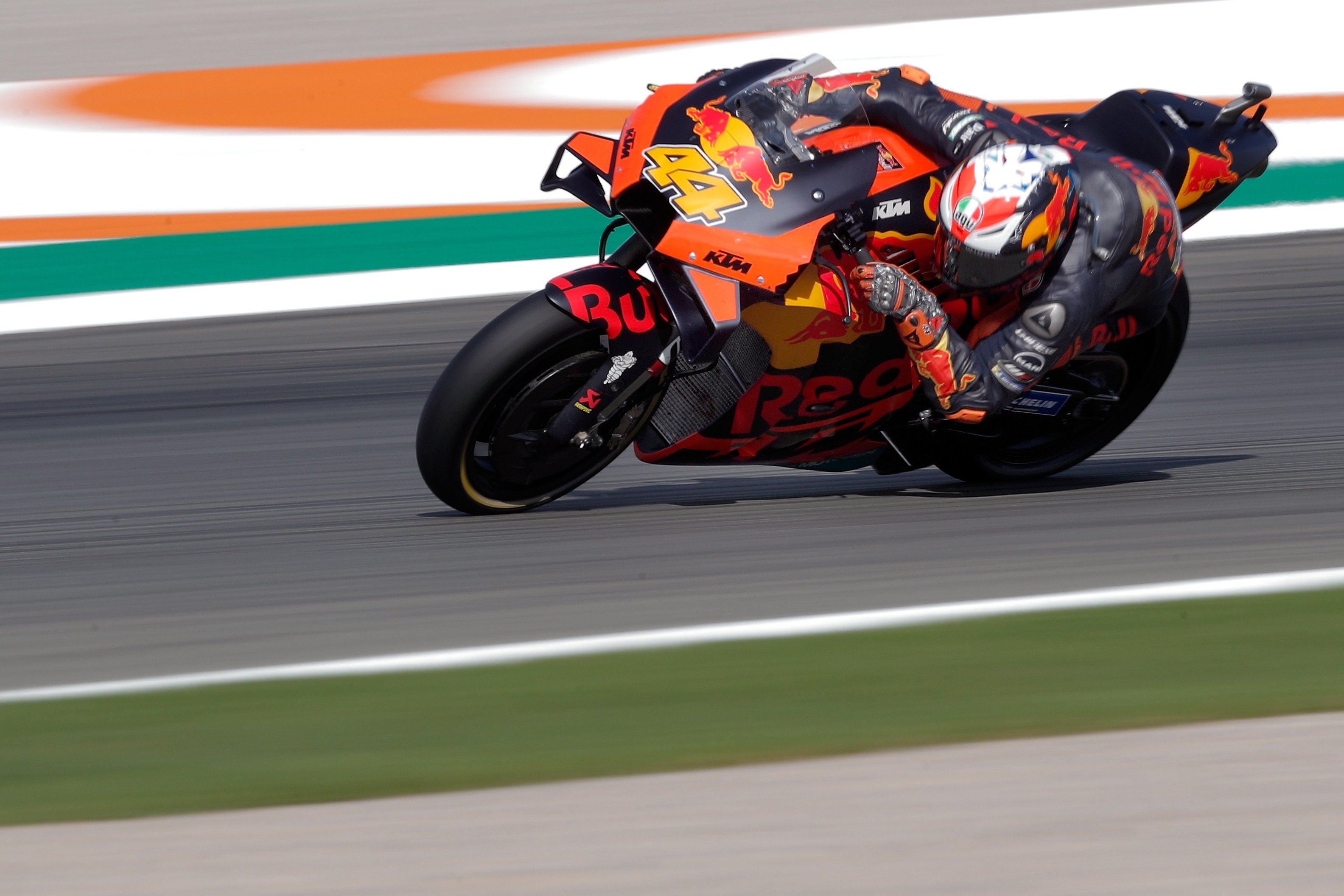
-If you had to advise a boy, how do you get to the MotoGP?
-Each rider has taken a different path and there is no fixed path that leads you to the MotoGP. In my case I started doing Enduro, which is in the mountains, like the Dakar, but lighter. There are riders who come from the smallest motorcycles. The summary has to be that when children start they have to have a lot of fun. That is what is essential for passion to become a job.
- Why is Spain so strong in motorcycling?
-Because of the culture, as here they have a very strong culture with football and there are great players who are around the world. In Catalonia it is the region where I grew up and lived and together with other regions in Spain they are pioneers in motorcycling. We have a very large infrastructure with circuits for mini motorcycle, motocross, enduro and that allows us to start at a very young age. In addition, there are companies that accompany and sponsor the start of a pilot and that is the most difficult time because parents have to pay for it.
- How was your love for two wheels born?
My father was a big fan of motorcycles. He liked it very much, but on an amateur level and he didn't compete. He is a car mechanic, but he loved to go to the mountain with his friends on a motorcycle and wanted to teach us motorcycling as a way of life. Not as much as a job, but that we were passionate about it. Everything has to start as fun as we did with my father and in the end it became a job.
Espargaró has the peculiarity that he competes on the track with his older brother Aleix (Aprilia). Pol shined before breaking into the premier category and was Moto2 champion in 2013 (6 wins and a total of 10 in the division) and also scored 5 in 125 cm3. In the MotoGP he has 8 podiums, 3 pole positions and a lap record. This year it was third in the start in Qatar and 12th in Indonesia. He's seventh in the championship.
-You were champion in Moto2, but why haven't you won in MotoGP yet?
-In MotoGP, the level is very high with the best riders and machines in the world. It's important to have a good rider and have a good bike. This is like a relationship of love, of a couple, that the two people have to love each other or there has to be a way of life that pleases both people. This is the same thing. Every bike has a driving style; if the bike is good, the rider too and fits his driving style, then the results come out. It is very difficult to achieve this. It is increasingly difficult with many young riders.
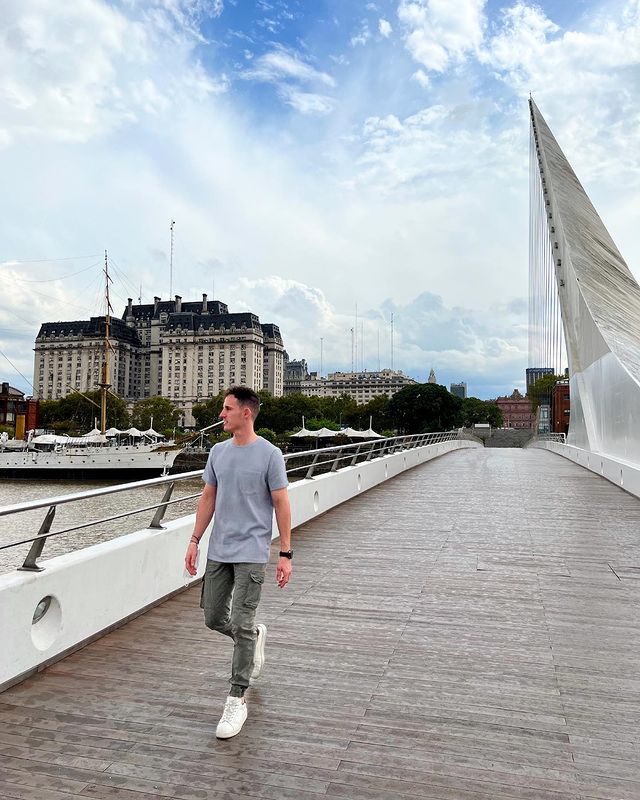
The Catalan jumped to the premier category in 2014 and raced in top teams such as the Yamaha satellite, the Monster Tech3 and the official KTM until 2020. In 2021 he arrived at the official Honda MotoGP squad and had to measure himself against the best of the last decade, Marc Márquez, who returned after his injuries and is out this weekend due to his recovery from his diplopia, a problem that suffers him for several years (N. of the R: sequel of a head injury from a fall when he was racing in Spain) and that hit him again after another blow at the Indonesian Warm Up on 20 March.
With this scenario, Espargaró remained the leader of the team until his compatriot can return and, in that case, we will have to see how the six-time MotoGP champion returns. It is possible that Pol will be the spearhead of Honda in a season in which he will seek revenge after two bad years in which he finished sixth and fifth in the Constructors' Championships, far from his glorious history in the Motorcycle World Championship.
- Does it give you pressure to be the flag of the team until Marc returns?
-Let's hope he returns soon because it's important for the factory, for the team, the spectators and me as his teammate. Marquez is the pilot who sets the stick. I'm trying to cut him short to try to be fast like him. With his absence there is no other choice but to continue to give him forward.
- Why wasn't Honda ahead in the last two seasons?
-It's a lot of things: many factors came together that made the perfect storm. One is the absence of Marc due to the start of his injuries, he started not being in the races and that gives Honda a doubt when it comes to developing the bike that cannot work for Marc. They did not know how to “trust” the pilots who were for that “Marc dependency” in recent years. It also affected the issue of COVID-19; European factories were less affected than Japanese ones. COVID-19 hit Japanese society very hard because they are much more respectful of the medical issue and made very strict and long isolations. Then the evolution (of motorcycles) stopped to zero, while in Europe there was a progression, slower, but development continued, but this year Honda made a great motorcycle that can win the world championship.
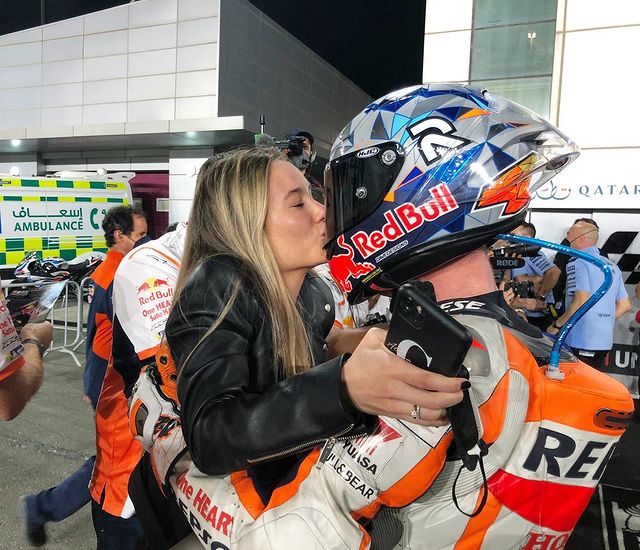
- Is this the year you can fight for the title?
-Maybe. There are many races ahead and a lot can happen, but we are aware that we have a good bike. We were fast at the start of the preseason and in Qatar we did the fastest race in Honda's history on that circuit. We had some problems in Indonesia that we know where they came from and how to solve them. In Argentina it is an important point to resume the sensation of Qatar and we are only ten points away from the first.
- What is the key to being fast in Termas de Río Hondo?
-It is a circuit that adapts well to Honda. Every year they were competitive and were able to win with both Marc (Marquez) and Cal (Crutchlow). It is a complicated and technical circuit and not coming for two years it is difficult to get to know each corner again.
The World Speed Motorcycle Championship was born in 1949, a year before Formula 1. Throughout its history it had charismatic champions and motorcyclists have the peculiarity that in each fall the first thing he does is look for his motorcycle and do not analyze a possible injury. The glamour of MotoGP or other elite championships such as the Superbike World Championship or the strong Spanish competition (CEV), sometimes contrasts with the tragedy.
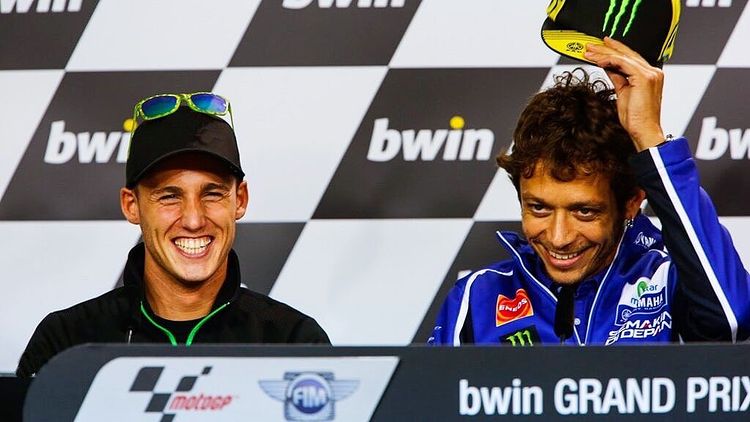
- How do you move on after the death of a colleague?
Well, it's always the negative part of our sport, isn't it? Our sport has very beautiful things, we live from it and we love to live from it and make the people around us passionate. But it also has its negative side, which are falls, injuries and obviously fatal falls. We have the utmost respect for this sport, we respect a lot when we get on the motorcycle, we try to be 100% prepared, logically to face all the problems that may come, but we always know that these things can happen and you think that it will not happen to you, but we try to be as prepared as possible.
- And is there anything else we can do for safety?
-Always. That's always. We have on Grand Prix weekends we have a Safety Commission, the Safety Commission, with all the MotoGP riders together with the organization to see the problems that the circuits we are racing on. It is after the first day of competition on each circuit and is to evaluate the possible risks of each circuit, as well as technological improvements that can help us improve safety.
- Do you have any anecdote with Marc Márquez?
- (Laughter) We've had many battles together and we've had them several times. Last year we started together on the team. We run since we were little together. I remember we ran the Conti Cup, which was promotional. We came from France and we were very young and did not reach the ground on top of the motorcycle. We only saw heads with the helmets, which were very big and we were very small. In the end, life led us to the best team in the world.
- How do riders, being so thin, manage to tame a motorcycle that weighs almost 200 kilos?
-We train a lot and we always have that balance between weight and muscle power. The more muscle power, the more muscle volume and what weighs more on the body is muscle more than fat. We are as strong as possible and as thin as possible. I'm 1.70 and I'm always between 62 and 64 kilos. That's quite a bit, but we don't have to build a big muscle, but rather a large muscular resistance that allows us to do many laps at a constant pace.
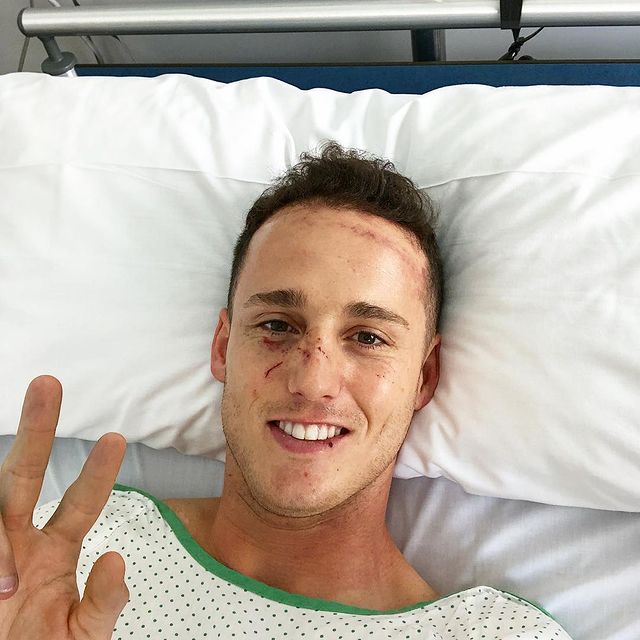
- Do you have any special diets?
-I'm vegan and I try not to eat anything that comes from animals. It's a decision I made two and a half years ago. I didn't know how I would feel, but that made me much stricter about the diet. It avoids me from taking saturated fats or everything from milk, cheeses, or processed meat. That makes my weight more constant and by eating more vegetables it allows my weight to be more anti-inflammatory and helps me recover.
- What was it like to race against Valentino Rossi?
-He is a benchmark for everyone and knew how to adapt to different years. For me, the most difficult thing about this sport is to adapt to different generations of each rider. In Valentino's case, there was a much bigger evolution than I experienced, from two strokes to four strokes, if we just think about how he started racing in 500 cm3 and his driving style and how it changed until the last year he raced, how he got on top of the bike, the difference is incredible, to take the whole bike outside and tilt it to inside, even touching the floor with the elbow. He was able to adapt to all driving styles and remain fast. That is an enviable thing.
- Do you see yourself racing at 40 in MotoGP?
- (Laughter) I think it's hard. That's why injuries have to help us. Health comes first and Valentino knew how to take care of himself and tried not to fall much. I hope I can hold out much longer.
- Would you cheer for the Dakar Rally like Danilo Petrucci?
-For that kind of sport you have to have talent. You can't just jump into the desert or think that if you're fast in MotoGP you can be fast in the Dakar. For everything you have to have a different talent and Danilo showed that he has an incredible talent for dirt bikes and guidance. This year he left us all open-mouthed with what he did in the Dakar and all the MotoGP riders pushed him a lot and I don't see the Dakar racing because I don't have that talent that Danilo has.
-After an injury due to a fall, how do riders recover physically and psychologically to return to the first level?
-Well, it's difficult, it's very complicated and it depends on what injury is recovered in one way or another. Whether there are (how to say) sequels or not. I've had very bad injuries. In the second year of KTM (the fall of 2018) I had a fairly serious injury to my neck, in my neck, my spinal cord inflamed, I was about to be in a wheelchair. But finally everything was a scare, a few months of recovery that went hard and long, but in the end you get back on the bike and it's the only thing you know how to do, and you're passionate about it and you try to forget everything. Do a “reset” and start over.
- Did they ever tell you that maybe you were going to stay in a wheelchair? How was that?
-At the time of the accident, I lost sensation in practically all my body. I couldn't move arms or legs because of the impact on the cervical and spinal cord. At that moment it's the longest seconds of my life, isn't it? I didn't notice practically anything. Little by little I started to notice a little tingling in my feet and hands and started moving them again. But then I was in the following months I couldn't sleep, I woke up at night with contractures in the cervical, huge, I was heavily medicated because I had neural problems, all the nerves, nerve endings, anesthesia in my arms. It was really hard, but good in the end when you're good and healthy they push you to go a little faster to know where you came from and know where I've come from.
- How did you get ahead?
Above all, surround myself with the most beloved people, right? The one around you, who loves you. Those people who in the end take you up and make you believe in yourself and love you and be able to compete again at your highest level. I was lucky enough to have my wife by my side, who is an amazing woman, who helped me at all times. I remember that when I was most medicated I couldn't walk straight down the street, right? And then she grabbed me and accompanied me to the “physio”, she even helped me eat. I have had many moments like this in my life and it has been in practically all of them. And well, having people like that by your side is crucial.
- And how much is that worth?
I don't think I could get where I got to without her or my parents, who believed in me, not like wanting me to be world champion, but believed in me because they wanted me to have a good time and enjoy myself. Not that I was a company that ultimately had to make a profit at the end of my sports career. They did it without conditions and then have people in my day to day life that help me to be who I am.
KEEP READING
Últimas Noticias
Debanhi Escobar: they secured the motel where she was found lifeless in a cistern
Members of the Specialized Prosecutor's Office in Nuevo León secured the Nueva Castilla Motel as part of the investigations into the case

The oldest person in the world died at the age of 119
Kane Tanaka lived in Japan. She was born six months earlier than George Orwell, the same year that the Wright brothers first flew, and Marie Curie became the first woman to win a Nobel Prize

Macabre find in CDMX: they left a body bagged and tied in a taxi
The body was left in the back seats of the car. It was covered with black bags and tied with industrial tape
The eagles of America will face Manchester City in a duel of legends. Here are the details
The top Mexican football champion will play a match with Pep Guardiola's squad in the Lone Star Cup

Why is it good to bring dogs out to know the world when they are puppies
A so-called protection against the spread of diseases threatens the integral development of dogs


